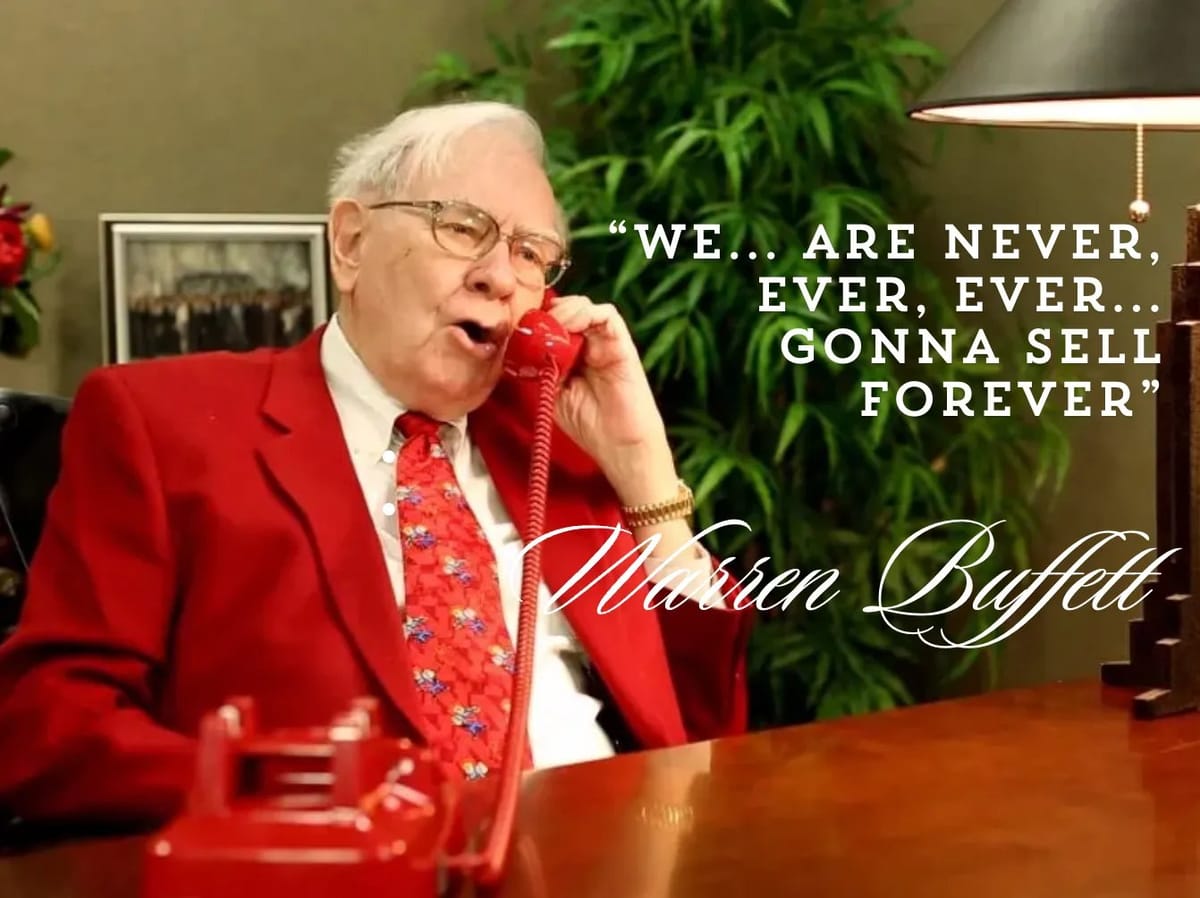Understanding Buffett: When to Sell Stocks (Hint: It's Never)

Warren Buffett is famous for his quote: "Our favorite holding period is forever." Let's dive into what this really means for value investors.
At first glance, it makes sense. Buffett buys and holds successful positions indefinitely. Think Coca-Cola since 1989 and Apple since 2016. But how do investors enjoy returns if they never sell?
Buffett's approach means viewing stocks as pieces of a private business. This implies realizing gains through dividends and share buybacks, not by selling. It’s a mindset shift.
Most investors see stocks as tradable assets. Even value investors plan to sell eventually. But what if you never sell? How does this change your investment strategy?
For Buffett, the goal is to recover capital via dividends and buybacks alone. This separates him from many self-identified value investors. It's about treating stocks as true business ownership.
Imagine two value investors: one plans to sell in 5 years, the other never plans to sell. The latter needs a much larger Margin of Safety due to the risk of going down with a failing business.
Buffett’s advice: "The trick is, when there is nothing to do, do nothing." A true practitioner of this philosophy finds very few stocks meeting their criteria, perhaps 1-2 per year.
It's about avoiding the permanent loss of capital, not just business risk. A business might appear risky but still be a good investment if undervalued. The key is discerning capital risk from business risk.
In summary, Buffett's "forever" holding period isn't just about patience. It's a disciplined approach requiring high standards and a long-term perspective on business ownership.
